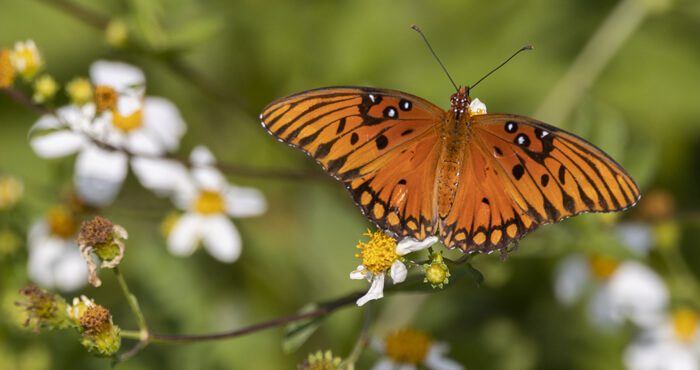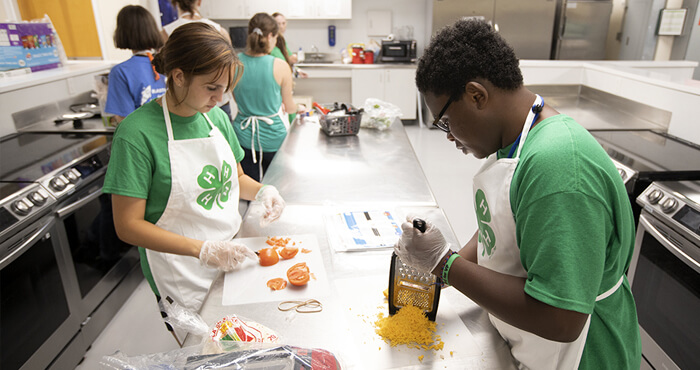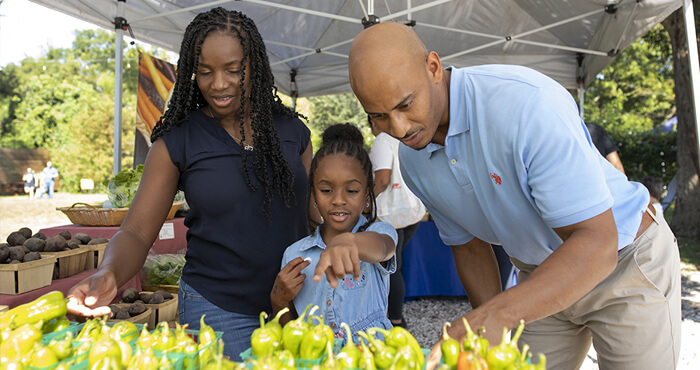
Lightning Safety
Florida residents are familiar with why our state is considered the lightning capital of the nation: the afternoon thunderstorm.
While it may not seem much of a concern, lightning is a real risk—in fact, you're more likely to get struck by lightning than attacked by a shark.
With Florida having the nation's most lightning fatalities in 2014, it's important to know how to to avoid being struck by lightning during storms.

Avoid Getting Struck By Lightning
Watch for Developing Thunderstorms
Tall cumulus, dark clouds may be one of the first signs of a developing thunderstorm. Be aware of thunderstorm watches and warnings issued for your area.
Lightning, which can strike as far as 10 miles away, is about the distance you can hear thunder. However, when a storm is 10 miles away, it may be difficult to tell a storm is coming—even if there is a clear blue sky, you can still be at risk for lightning strikes.
If you hear thunder, then you are within striking distance of lightning and should find a safe shelter.
Seek Safe Shelter
Anyone engaged in outdoor work or activities should stop as soon as he or she hears the first rumble of thunder and move to a safe location. Do not come back outside and resume activities until 30 minutes after hearing the last roll of thunder.
Remember your animal companions—bring them inside or put them in a safe structure.
Safe:
- Fully enclosed building with a roof, walls, and floor or a fully enclosed, metal-top vehicle.
Unsafe:
- picnic shelters, pavilions, tents (any kind), dugouts, greenhouses, carports or open garages; convertibles, bicycles, motorcycles, golf carts, boats without cabins
Be Safe Inside
While you are inside, stay away from windows and doors and don't handle items that conduct electricity, including corded telephones and computers. Do not take showers, do laundry, wash dishes, or use any appliance hooked up to your plumbing system.
Reduce Outdoor Risks
There is no safe place outside during a storm. If you cannot get to a structure, try these suggestions to minimize your risk:
- Squat low to the ground. Do the "lightning position" by kneeling or crouching with your hands on your knees—never lie flat on the ground.
- Avoid tall structures (towers, trees, fences, poles) and open areas.
- Get away from water, including pools, rivers, lakes, and beaches. If on the water, come ashore and land any boats, kayaks, canoes, or other watercrafts.
- Move into valleys, ravines, or low areas.
- Avoid water and wet items, metal objects, tents, and natural lightning rods (golf clubs, tractors, fishing rods, bicycles).
- In the woods, stay under a low clump of trees. Never stand under a tall single tree in an open area.
- If you feel your hair stand on end, drop to your knees, bend forward, and put your hands on your knees.
A note for boats:
Do not go out on the boat if thunderstorms are forecast. Return to land and a safe shelter as soon as skies are threatening or right when you hear thunder.
If you are caught in a storm, stay away from all metal and electrical parts, including your radio (unless it is an emergency). Move into the boat’s cabin, or if you're in a boat with no cabin, then drop anchor and get as low as possible.
Helping a Lightning Strike Victim
Medical care may be needed immediately to save the life of a lightning strike victim. Cardiac arrest and irregularities, burns, and nerve damage are common results of being struck by lightning.
Call 911, and perform CPR if the person’s heartbeat and breathing have stopped. People who have been struck by lightning do not carry a charge—they are safe to touch.
Adapted and excerpted from:
“Lightning Safety,” NOAA, National Weather Service (Accessed 08/2014).
FAMILY RESOURCES
- Disaster Prep and Recovery
- Disease Prevention and Management
- Families & Consumers
- Family Time
- Health and Nutrition
- Health and Nutrition for Children
- Health Care
- Pest Control
RESOURCES
UF/IFAS Sites
- Department of Family, Youth and Community Sciences
- Expanded Food & Nutrition Education Program (EFNEP)
- Family Nutrition Program (FNP)
- Food Science and Human Nutrition Department
- Health in a Heartbeat
UF/IFAS Publications
- Aging and Caregiving
- Children, Elders and Family
- Community Development
- Eating Well
- Food Safety in the Home
- Health and Nutrition
- Housing and Home Environment
- Money Matters
- Parenting
- Relationships
State & Federal Agencies



.jpg)

.jpg)